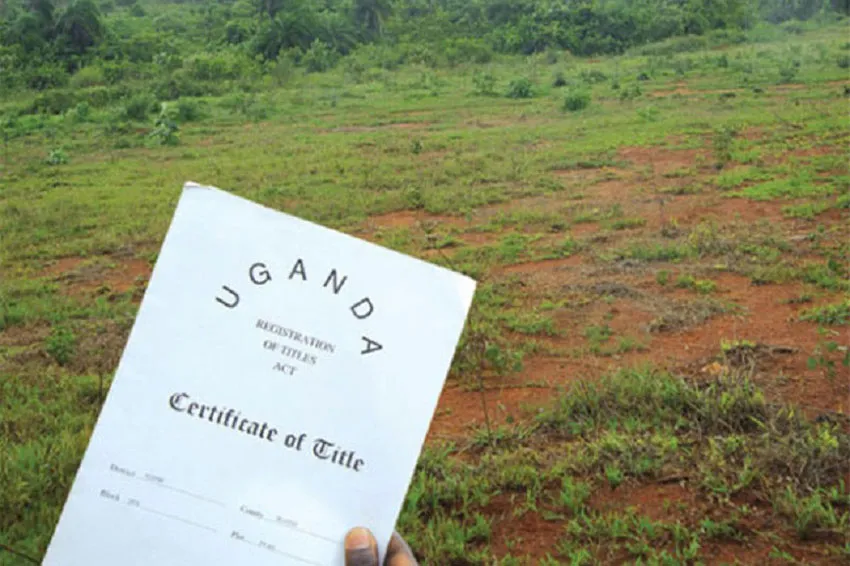Blog
Estate Planning Essentials: Protecting Your Legacy

Estate planning is a critical process that ensures your assets are managed and distributed according to your wishes, providing financial security for your loved ones and reducing potential disputes. In Uganda, where laws governing inheritance and property rights can be complex, proper estate planning is essential. Here’s what you need to know to protect your legacy effectively.
1. What is Estate Planning?
Estate planning involves arranging for the management and disposal of your assets during your life and after your death. This includes creating legal documents like wills, trusts, and powers of attorney, which outline your wishes regarding property distribution, guardianship of dependents, and healthcare decisions.
2. Why is Estate Planning Important?
- Ensure Your Wishes Are Honored: Your assets will be distributed as you intended.
- Avoid Family Disputes: Clearly defined plans minimize misunderstandings among heirs.
- Protect Dependents: Secure financial support and guardianship arrangements for children or vulnerable family members.
- Reduce Taxes and Costs: Proper planning minimizes estate taxes, legal fees, and probate costs.
- Plan for Incapacity: Appoint someone to make decisions on your behalf if you’re unable to do so.
3. Key Components of an Estate Plan
a) Will
A will is a legal document that outlines how your assets should be distributed after your death. It also allows you to:
- Appoint an executor to manage your estate.
- Name guardians for minor children.
- Specify funeral or burial preferences.
b) Trusts
Trusts are legal arrangements where a trustee manages assets for beneficiaries. Benefits include:
- Avoiding probate.
- Providing for dependents with special needs.
- Protecting assets from creditors.
c) Power of Attorney
This document appoints someone to make financial, legal, or medical decisions on your behalf if you become incapacitated.
d) Beneficiary Designations
Ensure that beneficiaries for bank accounts, retirement plans, and insurance policies are up-to-date and align with your estate plan.
e) Advance Directives
Also known as a living will, this document specifies your preferences for medical care if you cannot communicate them yourself.
4. Understanding Inheritance Laws in Uganda
Uganda’s Succession Act governs inheritance and property distribution. Key points to consider:
- Spouses and children are primary beneficiaries.
- Customary laws may apply to certain communities, especially for land and clan assets.
- Intestate succession (dying without a will) can lead to disputes and unexpected outcomes.
5. Steps to Create an Effective Estate Plan
a) Assess Your Assets
Compile a list of all your assets, including land, property, investments, bank accounts, and personal belongings.
b) Define Your Goals
Decide how you want your assets to be distributed and identify key individuals for roles such as executor or guardian.
c) Consult a Lawyer
Work with an experienced estate planning lawyer to draft and finalize legal documents, ensuring compliance with Ugandan laws.
d) Communicate Your Plan
Discuss your plans with your family and the individuals involved to avoid surprises and disputes.
e) Review and Update Regularly
Revisit your estate plan periodically or after major life events, such as marriage, divorce, or the birth of a child.
6. Common Mistakes to Avoid
- Failing to create a will or trust.
- Not updating beneficiary designations.
- Overlooking debts or liabilities.
- Ignoring tax implications for beneficiaries.
- Assuming that verbal agreements will suffice.
7. How Ekima Advocates Can Help
At Ekima Advocates, we provide comprehensive estate planning services, including:
- Drafting wills and trusts.
- Advising on tax-efficient strategies.
- Resolving inheritance disputes.
- Updating estate plans to reflect changes in laws or circumstances.
8. Frequently Asked Questions (FAQs)
Q: What happens if I die without a will?
A: If you die intestate, your assets will be distributed according to Uganda’s Succession Act, which may not align with your wishes.
Q: Can I disinherit a family member?
A: Yes, but it must be explicitly stated in your will and comply with inheritance laws.
Q: Is a handwritten will valid?
A: A handwritten will can be valid if it meets the legal requirements, including proper witnessing and signing.
Q: Can estate planning reduce taxes?
A: Yes, strategic planning can minimize estate taxes and other costs for your heirs.
9. The Role of a Lawyer in Estate Planning
- Ensure all documents comply with the law.
- Provide advice on minimizing taxes and protecting assets.
- Assist in resolving disputes or challenges to the estate.
Conclusion
Estate planning is not just for the wealthy—it’s for anyone who wants to secure their legacy and protect their loved ones. By creating a clear and comprehensive plan, you can ensure peace of mind and financial stability for your family.
Contact Ekima Advocates today for personalized estate planning services. Let us help you build a lasting legacy with confidence and clarity.
Related Posts
Understanding Land Transactions in Uganda
-
Posted by
Ekima
- 0 comments
Starting a Business in Uganda: Legal Requirements and Compliance
-
Posted by
Ekima
- 0 comments
Understanding Your Rights as an Employee in Uganda
-
Posted by
Ekima
- 0 comments
Steps to Take After Receiving a Court Summons
-
Posted by
Ekima
- 0 comments




